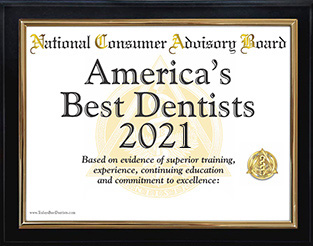
8 Most Common Teeth Whitening Questions
A bright, white smile is often associated with good health, confidence, and attractiveness. It’s no wonder, then, that teeth whitening has become one of the most popular cosmetic dental procedures in the world. From over-the-counter products to professional treatments at a dentist’s office, the options for whitening your teeth are numerous. If you’re considering teeth whitening in Hawthorne, NJ, you’re likely to have a few questions. This blog aims to answer the eight most common teeth whitening questions, providing you with the insight needed to make informed decisions about your dental care.
What Causes Teeth to Become Discolored in the First Place?
To understand how teeth whitening works, it’s helpful to first understand why teeth become discolored. Tooth discoloration typically falls into two categories: extrinsic and intrinsic stains. Extrinsic stains occur on the outer surface of the teeth and are usually caused by lifestyle habits like drinking coffee, tea, red wine, or smoking tobacco. These stains can often be addressed with surface-level whitening treatments.
Intrinsic stains, on the other hand, are embedded within the tooth structure and may result from aging, certain medications (like tetracycline), trauma to the tooth, or excessive fluoride during tooth development. Intrinsic stains can be more challenging to treat and often require professional-grade whitening or alternative cosmetic treatments such as veneers.
The natural aging process also contributes to discoloration. As the enamel thins over time, the yellowish dentin beneath becomes more visible, resulting in a darker appearance. Genetics also play a role in how white or yellow your teeth are, to begin with.
Is Teeth Whitening Safe?
Safety is a top concern for anyone considering cosmetic treatments, and teeth whitening is no exception. One of the most common teeth whitening questions is whether or not the process is safe. The good news is that when performed correctly—especially under the supervision of a dental professional—teeth whitening is generally considered safe and effective.
Professional whitening treatments use hydrogen peroxide or carbamide peroxide, which have been approved by dental associations for cosmetic use. These ingredients break down into oxygen molecules that penetrate the enamel and remove stains. The concentrations used in professional settings are higher than those found in over-the-counter products, allowing for more dramatic results in less time.
However, overuse of whitening products can lead to enamel erosion, gum irritation, and increased tooth sensitivity. This is why it’s essential to follow the instructions provided by your dentist or the product manufacturer. If you have existing dental conditions like cavities, gum disease, or worn enamel, your dentist may recommend treating these issues before proceeding with whitening.
How Long Do Teeth Whitening Results Last?
Another one of the most common teeth whitening questions revolves around the longevity of the results. The answer can vary significantly depending on the method used and your lifestyle choices following treatment. On average, professional teeth whitening can last anywhere from six months to two years. Over-the-counter products typically offer more temporary results, lasting a few months at most.
To extend the results, it’s crucial to maintain good oral hygiene and avoid foods and drinks that are known to stain teeth. Drinking through a straw, brushing after meals, and using whitening toothpaste can help maintain your bright smile. Regular touch-ups, whether at home or with your dentist, can also prolong the effects.
It’s important to understand that no whitening method is permanent. Because our teeth are constantly exposed to various staining agents, some level of maintenance will always be required. Dentists often provide at-home whitening trays after an in-office procedure to help patients manage ongoing maintenance.
Can Teeth Whitening Cause Sensitivity?
Tooth sensitivity is a common side effect associated with whitening treatments, and it’s one of the most frequent concerns among patients exploring teeth whitening in Hawthorne, NJ. Sensitivity typically occurs because the peroxide in whitening products can temporarily irritate the nerve endings in the tooth.
The severity and duration of sensitivity can vary. Some people may experience mild discomfort for a few hours, while others might have heightened sensitivity for several days. It’s usually temporary and subsides once the treatment is completed. Dentists often recommend using toothpaste formulated for sensitive teeth before and after the procedure to alleviate symptoms.
If you already suffer from tooth sensitivity, it’s important to discuss this with your dentist beforehand. They may recommend a gentler approach or a different whitening method altogether. For example, lower-concentration treatments used over a longer period might minimize discomfort while still achieving desirable results.
What Are the Different Types of Teeth Whitening Options?
There are several methods for whitening teeth, each with its own set of advantages and drawbacks. The most common options include in-office whitening, take-home kits provided by a dentist, and over-the-counter products like whitening strips, toothpaste, and gels.
In-office whitening is the most effective and fastest method. It typically involves the application of a high-concentration peroxide gel, often activated by a special light or laser. Results are visible almost immediately, making it a popular choice for individuals preparing for special events.
Take-home kits offer a more gradual approach but still provide professional-grade results. These kits include custom-fitted trays and a lower concentration of whitening gel. They allow you to whiten your teeth at your own pace under your dentist’s guidance.
Over-the-counter products are the most accessible and affordable but are less effective than professional treatments. These can be a good option for minor stains or as a follow-up to more intensive whitening. However, the one-size-fits-all trays and lower peroxide levels mean that results will be less dramatic and take longer to achieve.
Who Is a Good Candidate for Teeth Whitening?
Not everyone is an ideal candidate for teeth whitening, and this is one of the most crucial yet overlooked aspects of the procedure. The effectiveness of whitening largely depends on the type and severity of staining, as well as the overall health of your teeth and gums.
Individuals with yellow-toned stains respond best to whitening treatments, while brown or gray stains may be more resistant. People with healthy gums, no cavities, and minimal dental restorations (like crowns or veneers) are generally good candidates. Whitening treatments do not work on dental restorations, so these may need to be replaced to match the newly whitened teeth.
Pregnant or nursing women are usually advised to postpone whitening, even though there is limited evidence suggesting harm. Additionally, individuals under the age of 16 may be more susceptible to sensitivity and are usually discouraged from undergoing whitening treatments.
A thorough dental examination is essential before proceeding with any whitening method. Your dentist can help determine if whitening is right for you or if alternative cosmetic procedures might be more effective.
Are There Any Risks or Side Effects?
Like any cosmetic procedure, teeth whitening does come with some risks and side effects, albeit generally mild and temporary. The most commonly reported issues are tooth sensitivity and gum irritation. These are usually caused by the peroxide penetrating the enamel or coming into contact with soft tissue.
Some individuals may also experience uneven results, especially if they have dental restorations or areas of enamel erosion. In rare cases, overuse of whitening products can lead to enamel damage, which is why following your dentist’s recommendations is so important.
It’s worth noting that some DIY or non-regulated whitening treatments, especially those purchased online, can pose serious risks. These products may contain harmful ingredients or concentrations of peroxide that exceed safe levels. Always consult your dentist before trying any new whitening product or regimen.
How Much Does Teeth Whitening Cost?
Cost is often a major consideration for individuals interested in teeth whitening in Hawthorne, NJ. The price can vary widely depending on the method chosen. Professional in-office whitening typically ranges from $300 to $800 per session, while take-home kits provided by a dentist may cost between $100 and $400.
Over-the-counter options are the most budget-friendly, often ranging from $20 to $100. While these products are less expensive, they may also be less effective and require more frequent use to maintain results. It’s essential to weigh the cost against the expected outcomes and longevity of results.
Some dental insurance plans may cover part of the cost if the whitening is deemed medically necessary (though this is rare). Many dental offices also offer financing options to help make professional whitening more accessible. When considering cost, remember that professional treatments not only provide better results but also come with the added benefit of supervision and safety.
Conclusion
Teeth whitening is a powerful tool for enhancing your smile and boosting your self-confidence. By understanding the answers to the most common teeth whitening questions, you can make an informed decision that suits your lifestyle, budget, and dental health. If you’re looking for expert advice or treatment options for teeth whitening in Hawthorne, NJ, consulting a qualified dentist is the best place to start. They can help you choose the right method and ensure your journey to a brighter smile is both safe and successful.
Need a Dentist Office Near You?
At The Smile Spa of North Jersey, LLC, we’re here to provide the personalized, high-quality dental care you deserve in a space where your comfort always comes first. Whether you’re due for a routine checkup or need more specialized treatment, our friendly and experienced team is ready to support your wellness journey every step of the way. Reach out to us today—we’d love to welcome you in, answer your questions, and help you rediscover your best smile.
Categorised in: Teeth Whitening

